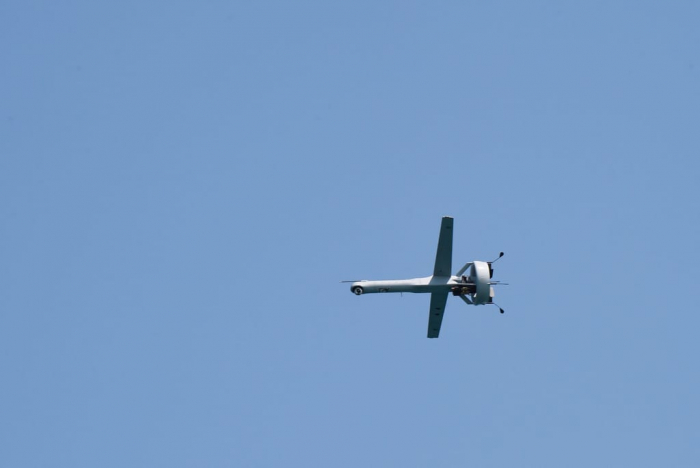NATO is ramping up its work to detect and stop attacks against subsea energy and data cables in the Baltic Sea, its chief said Tuesday.
The military alliance’s Secretary-General Mark Rutte announced that NATO is launching the “Baltic Sentry” program, which will involve “a range of assets” including frigates, maritime patrol aircraft and “a small fleet of naval drones."
Top NATO leaders are in Helsinki to discuss securing the Baltic Sea in response to a string of acts of sabotage to telecommunication and energy cables. Defense ministers have previously pointed the finger at Russia for these incidents.
The summit is hosted by Finnish President Alexander Stubb and Estonian Prime Minister Kristen Michal, and includes heads of state from Denmark, Germany, Latvia, Lithuania, Poland, Sweden, as well as a European Commission top official.
So far, affected countries have not been able to definitively pin the attacks on Moscow — a common challenge with so-called hybrid attacks, of which attacks on critical infrastructure are one type.
NATO's efforts will involve stepping up surveillance in the area, Rutte said, and integrating member countries' national surveillance efforts for “comprehensive threat detection.”
Rutte also stressed that enforcement will be part of its response, modeled after Finland’s response to a cable cut on Christmas Day in which Finnish authorities opened a criminal investigation, imposed a travel ban on seven crew members and boarded the Eagle S ship to inspect it.
“Ship captains must understand that potential threats to our infrastructure will have consequences, including possible boarding, impounding and arrest,” Rutte said.
The alliance will also work with critical infrastructure providers so that cables are more resilient, he said.
Despite the repeated sabotage, Finnish Foreign Affairs Minister Elina Valtonen told local media there is no need to invoke NATO’s Article 4, which triggers formal talks among allies if one member feels its integrity or security is threatened.
Even before NATO’s announcement on Tuesday, military activity has been ramping up in the area.
Swedish Prime Minister Ulf Kristersson recently announced that Stockholm would place up to three warships under NATO command in the Baltic Sea for the first time, while NATO said in late December that allies would beef up their naval presence. Finnish media reported the alliance would send as many as 10 warships to protect undersea cables from sabotage.
German Chancellor Olaf Scholz was reported Tuesday as saying that the German navy will contribute ships, and the Lithuanian navy is increasing its surveillance in the area.
Lithuanian Defense Minister Dovilė Šakalienė said on X that new information from Sweden revealed “how close we were to a situation where all three major power cables [NordBalt, Estlink 1 and Estlink 2] could be damaged at the same time.”
Šakalienė said she has spoken to defense ministers from Sweden, Finland, Estonia, Latvia, Poland and the Netherlands and they have all agreed that there is an “urgent need” to boost their presence in the Baltic Sea and revise international and national legislation to reflect the threat posed by hybrid warfare.
Defense ministers from the Baltic countries and the Netherlands are also meeting on Tuesday in The Hague to discuss the issue, she added.
Politico
More about:
















































